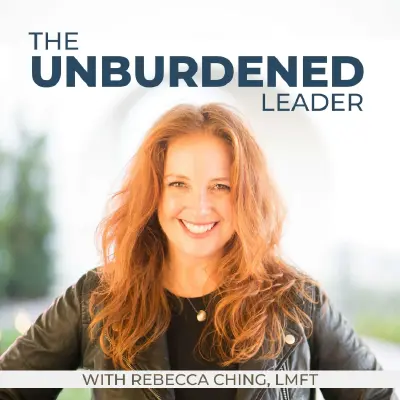As I’ve been reflecting on the past year, themes of relational trauma, betrayal trauma, and shame have come up again and again in our culture at large and in the work I do with leaders.
Relational and betrayal traumas disrupt our ability to trust—ourselves, others, and even the world around us. These wounds often linger in ways we don’t fully see. They impact how we navigate relationships, handle conflict, and lead ourselves and others.
And far, far too often, these unaddressed, unhealed traumas beget shame. Shame is one of the most destructive forces in leadership and relationships.
When leaders operate out of shame, it’s volatile and dangerous. It hurts both those who wield it and those who experience it. Healing shame requires sharing our pain with those who have earned the right to hear our stories—those who can hold space for us with compassion, accountability, and empathy.
Empathy is the antidote to shame, and it’s also what transforms leadership. Leaders who can navigate challenges with compassion, even under immense pressure, create trust, relational resilience, and growth environments.
In today’s replay of my conversation with Dr. Frank Anderson, he reminds us that healing isn’t just personal—it’s deeply relational. He also offers the provocative idea that we all have the capacity to be healers and the capacity to harm.
When we commit to healing, we reclaim our ability to lead with clarity, compassion, and courage.
Frank Anderson, MD, completed his residency and was a clinical instructor in psychiatry at Harvard Medical School. He is an author, psychiatrist, therapist, speaker, and trauma specialist who’s spent the past three decades studying neuroscience and trauma treatment. He is passionate about teaching brain-based psychotherapy and integrating current neuroscience knowledge with the IFS therapy model. His published work spans contributions to literature and training for a clinical audience and works accessible to the general public.
Content Warning: We cover some heavy topics around verbal and physical abuse, conversion therapy, and suicidal ideation. Please take care as you listen to this conversation.
Listen to the full episode to hear:
Why it was so important for Frank to tell his story from a place of healing and love, even for the people who hurt him the mostHow releasing fear, anger, and shame makes space for forgiveness, healing, and loveWhy forgiveness and relational healing can only come after processing and releasing the trauma of what happened within yourselfWhy Frank says that healing is possible, but we’re never done healingHow holding onto divisive binary thinking harms all of us and keeps our culture from healingHow holding space with love and empathy can help people acknowledge what happened and accept accountabilityHow unprocessed trauma causes us to repeat toxic patterns in our livesLearn more about Frank Anderson, MD:
WebsiteInstagram: @frank_andersonmdFacebook: @mdfrankandersonConnect on LinkedInTo Be Loved: A Story of Truth, Trauma, and TransformationTranscending Trauma: Healing Complex Ptsd with Internal Family SystemsLearn more about Rebecca:
rebeccaching.comWork With RebeccaSign up for the weekly Unburdened Leader EmailResources:
EP 117: Rethinking Resilience: Moving from Bouncing Back to Relational Resilience with Soraya ChemalyOpen Monogamy: A Guide to Co-Creating Your Ideal Relationship Agreement, Tammy NelsonConan Gray - HeatherP!NK - TRUSTFALLFellow Travelers